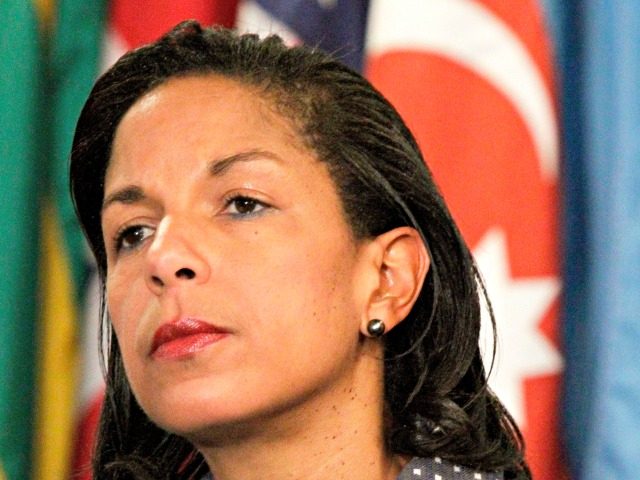Susan Rice has as much trouble with her memory as Hillary Clinton. Rice testified in writing that she “does not recall” who gave her key Benghazi talking points she used on TV, “does not recall” being in any meetings regarding Benghazi in five days following the attack, and “does not recall” communicating with anyone in Clinton’s office about Benghazi.
Rice, former Obama National Security Advisor and U.S. Ambassador to the United Nations, admitted in written responses under oath that she emailed with former Secretary of State Hillary Clinton on Clinton’s non-government email account and that she received emails related to government business on her own personal email account. Her 2019 sworn written answers are available here.
In responding to each of the 13 questions asked of her, Rice claimed 18 times that she “does not recall” critical information.
- When asked to describe meetings or discussions about the events in Benghazi other than daily intelligence briefings, Rice said that she had discussions with friends and family, and “does not recall attending any meetings focused on the events in Benghazi between September 11, 2012 and September 16, 2012, other than attending a ceremony on September 14, 2012, at Joint Base Andrews … ” Rice said she believes she would have discussed the Benghazi attack with members of her UN staff, colleagues at the United Nations, and individuals in attendance at the ceremony on September 14, 2012, at Joint Base Andrews.
- When asked why she used a non-government email accounts to conduct U.S. government business while U.S. Ambassador to the United States, Rice acknowledged using her personal email account, at times, to conduct official government business without answering the question why she used non-government email accounts.
- Rice did not directly answer a question about deleting emails. Rather, Rice answered that “when emails related to U.S. government business were sent to [her] personal email account, [she] took steps to ensure that a copy of that email was also on her government email account.” and she “does not recall having need to review and return emails form any non-governmental email account.”
Rice’s interrogatory responses come in our FOIA lawsuit that seeks records concerning “talking points or updates on the Benghazi attack” (Judicial Watch v. U.S. Department of State (No. 1:14-cv-01242)). This FOIA suit led directly to the disclosure of the Clinton email system in 2015. We uncovered “talking points” created by the Obama White House and other documents showing that statements about the attack made on the eve of the 2012 elections by then-National Security Advisor Rice were false.
On December 6, 2018, U.S. District Court Judge Royce Lamberth ordered Obama administration senior State Department officials, lawyers and Clinton aides, as well as Susan Rice, to be deposed or answer written questions under oath. Judge Lamberth called the Clinton email system “one of the gravest modern offenses to government transparency.”
On March 2, 2020, Judge Lamberth granted us discovery that includes taking testimony from Clinton and Mills, under oath, regarding Clinton’s emails and the existence of records about the Benghazi attack. Clinton and Mills filed an emergency mandamus appeal to avoid testimony. Their petition is still pending before the U.S. Court of Appeals for the District of Columbia Circuit.
Our discovery is centered upon whether Clinton intentionally attempted to evade the Freedom of Information Act (FOIA) by using a non-government email system and whether the State Department acted in bad faith in processing our FOIA request for communications from Clinton’s office.
Rice didn’t recall much about the Obama administration’s response to the Benghazi terrorist attack. Similarly, Hillary Clinton couldn’t recall much in her written sworn responses to our questions – which is one reason why a federal court judge ordered her in-person deposition testimony.

COMMENTS
Please let us know if you're having issues with commenting.